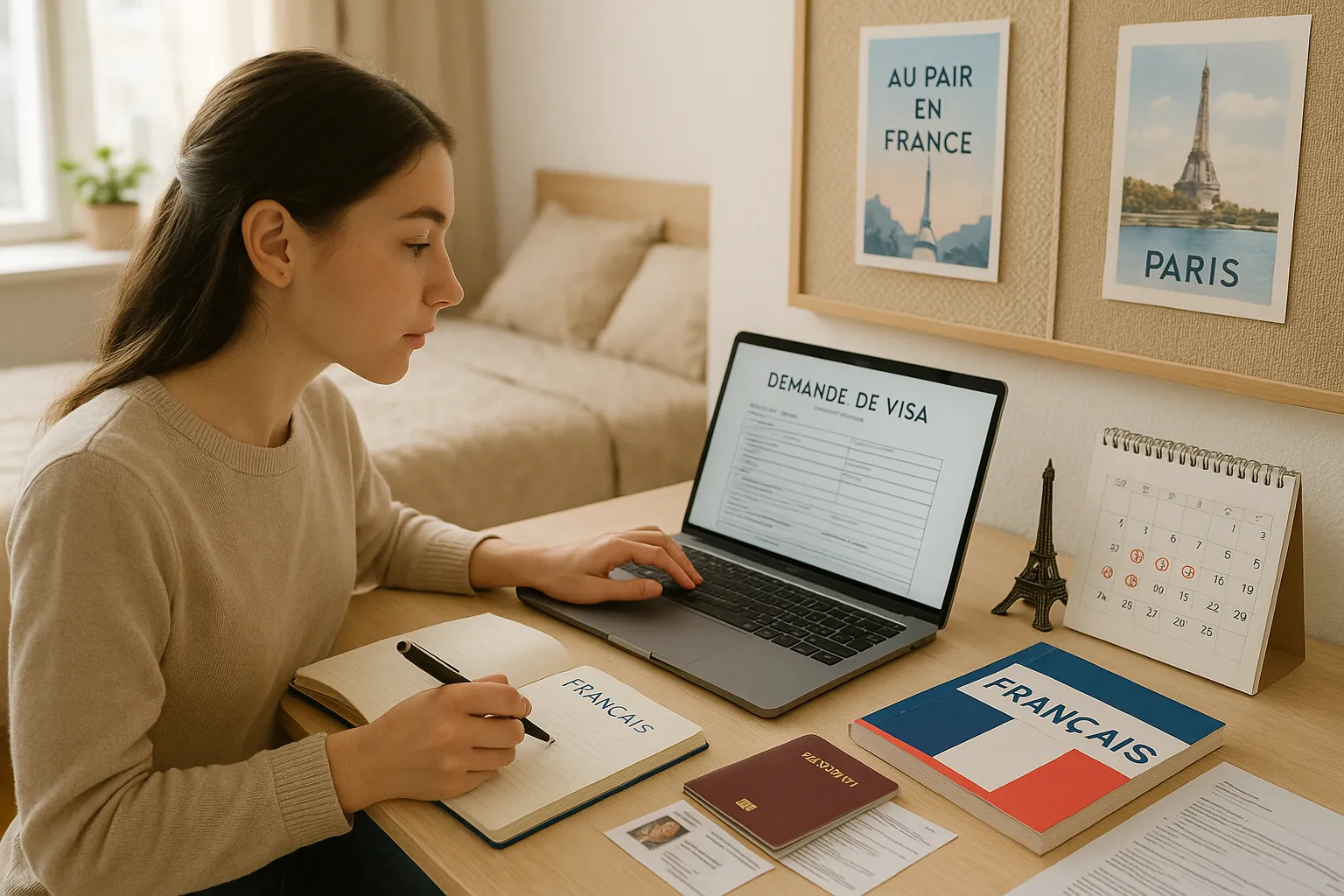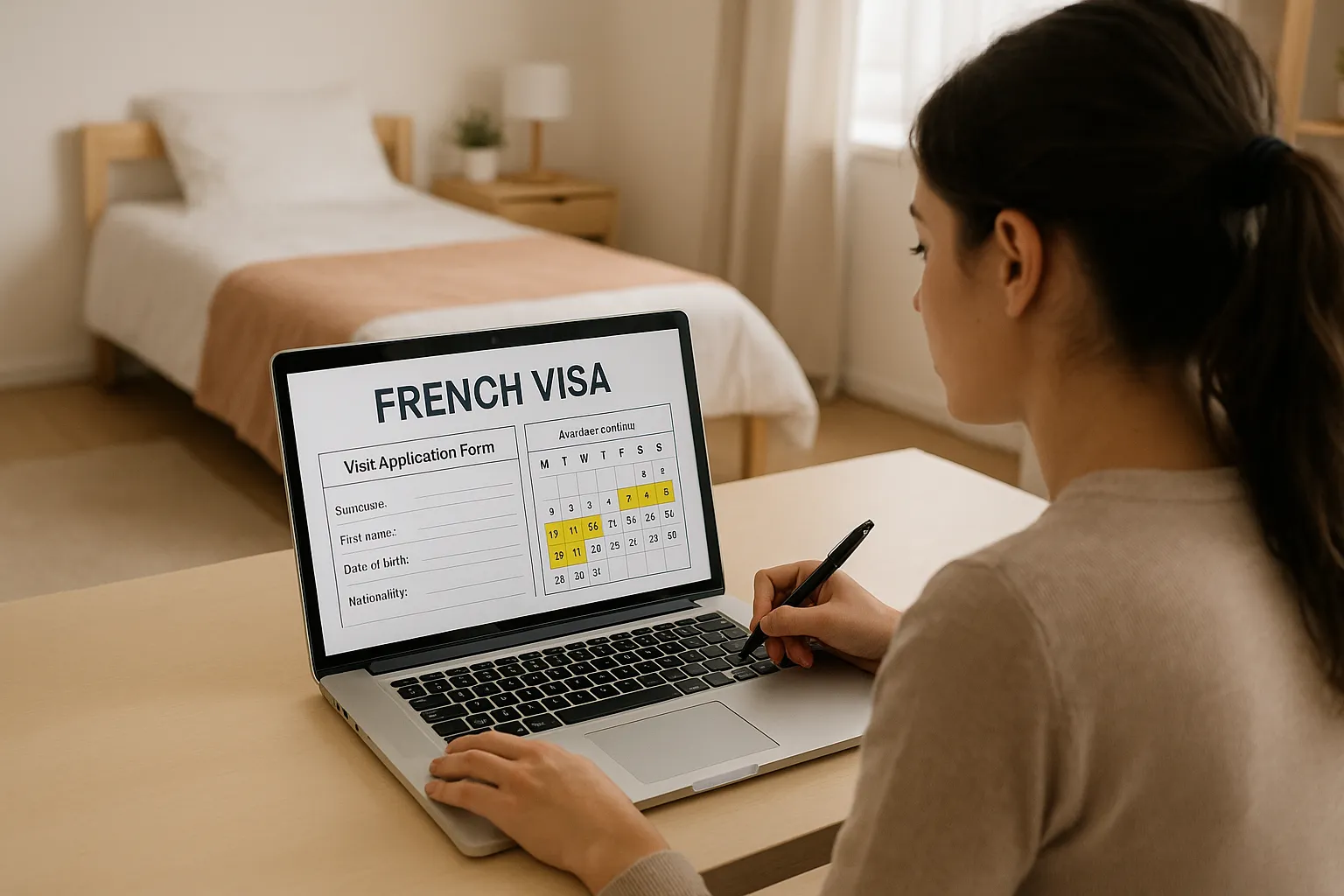How to Secure a Visa as an Au Pair in France in 2025

Why choose the au pair route in 2025?
Spending a year in France as an au pair is still one of the most affordable and culturally immersive ways to improve your French, discover the country from the inside, and build an international CV. The French “stagiaire aide-familiale étrangère” program (its official name) offers free room and board, weekly pocket money, and time for language courses—while opening the door to a long-stay au pair visa that can be renewed up to two years.
Yet, compared with pre-pandemic years, today’s application involves stricter insurance rules, new online portals, and tighter prefecture follow-up once you are in France. This 2025 guide walks you through every step, highlights the changes that tripped up applicants last year, and shares practical tips to maximize your chances of approval.
1. Check you meet the 2025 eligibility criteria
Before you invest time in paperwork or start contacting host families, confirm that you match the French government’s baseline requirements:
- Age: 18 to 30 years old on the day you submit the visa application (some consulates accept up to 26; always verify locally).
- Education level: High-school diploma or equivalent. If you plan to care for children under two, first-aid certification is strongly recommended.
- Basic French: A1 level or proof of recent language study. From 2024 onward, many consulates ask for a short motivation letter in French during the interview.
- Clean criminal record: You will need to provide a police clearance certificate from every country where you have lived over the past five years.
- Host family contract (CERFA 15736-02): Signed by both parties and pre-approved by the DIRECCTE (now part of DREETS) in the département where you will reside.
- Medical insurance: Comprehensive policy covering sickness, maternity, and repatriation for the entire stay. In 2025, minimum coverage must reach €40,000.
If one of those boxes is not ticked, speak with an immigration advisor before applying. ImmiFrance can pre-screen your profile in 24 hours and suggest alternatives such as the student visa or working-holiday visa when appropriate.
2. Find a legitimate host family—and validate the match
While popular au pair platforms still dominate the search, French prefectures have become stricter about verifying host family compliance. To avoid future headaches:
- Verify family size and income. The family must have at least one child under 18 living at home and enough income to pay your pocket money (between €90 and €120 per week in most regions).
- Ask for the family’s latest tax notice (avis d’imposition). This is now commonly requested by DREETS to confirm financial capacity.
- Schedule a video call tour of the au pair bedroom. Regulations require a private, furnished room of at least 9 m² with a window.
- Discuss daily schedules in detail. French labor inspectors want duties capped at 25-30 hours of childcare plus light housework. Anything more can trigger a visa refusal.
Once you feel confident, the family will draft the CERFA contract. You both sign, and the host submits it for approval to the local DREETS office. Expect a two- to four-week turnaround, sometimes longer in Paris and the Riviera during summer peaks.
3. Gather the documents for France-Visas
Below is the consolidated 2025 checklist. Documents marked asterisk must be less than three months old on your consulate appointment day.
- Completed France-Visas online form and receipt.
- Two biometric photos (35×45 mm, white background).
- Passport valid at least 15 months after intended entry date, plus copies of all stamped pages.
- Approved CERFA 15736-02 with DREETS stamp.
- Host family’s ID copies, proof of address, and last tax notice.
- Motivation letter in French, signed.
- Recent criminal record certificate(s)*
- Medical insurance certificate* (showing coverage & amount).
- Proof of French language ability (DELF transcript, university enrollment, or signed letter from language tutor).
- Flight itinerary (not necessarily paid yet).
- Visa fee: €99 as of July 2025.
Download the latest version directly from the official portal: France-Visas – au pair. Minor differences exist between consulates, so always cross-check the local list.
4. Book your consulate appointment early
Summer slots disappear quickly, especially in countries like the United States, Brazil, and South Africa. Aim to book three months before the targeted arrival date. If no slots are visible, check at 8:00 a.m. local time when cancellations refresh.
Need help finding an earlier slot? ImmiFrance offers a prefecture & consulate appointment monitoring tool that notifies you when new dates open, reducing wait time by up to 40 %.

5. Ace the visa interview
During the appointment, present originals and copies in the order listed above. Common interview questions in 2025 include:
- Why did you choose this specific family and region?
- How will being an au pair fit into your long-term academic or professional plan?
- Describe your childcare experience. Provide concrete examples.
Answer calmly, maintain eye contact, and avoid contradicting what is written in your contract. Officers increasingly cross-check social media; keep profiles consistent and professional.
Average decision time: 10-15 days if your file is complete. You’ll receive an email or SMS to retrieve your passport with the visa vignette.
6. Arriving in France: OFII validation becomes online-only
Since mid-2024, long-stay visa holders must validate their VLS-TS within three months exclusively on the ANEF website. You will:
- Create an ANEF account.
- Enter visa number, date of entry, and address.
- Upload stamp duty payment proof (€60 for au pairs in 2025; buy your digital fiscal stamp at any tabac or online).
After validation, download the attestation de validation—your temporary residence permit. Keep a copy on your phone; airlines may ask to see it if you travel within the Schengen Area.
7. Enroll in French classes and social security
Au pairs must attend at least 10 hours of language classes weekly. Public options include university “DU FLE” programs and GRETA evening courses. Private schools cost €800–€1,200 per semester but may offer flexible timetables.
Health coverage works in two layers:
- Private insurance you showed for the visa remains mandatory for the whole stay.
- After three months of residence, you may apply for the French public system (Assurance Maladie). While not legally required, it is free and simplifies doctor visits. ImmiFrance clients receive a bilingual step-by-step guide to speed up the online registration.
8. What to do if you change families or lose your placement
Life happens: personality mismatches, relocation, or family emergencies can end an arrangement early. You have two options:
- Find a new host family within one month and sign a new CERFA contract. Notify prefecture through your ANEF account.
- Convert to another status, for example student or employee. This is feasible but time-sensitive; book a consultation with an immigration lawyer as soon as possible.
Overstaying or working informally is risky. Prefectures issued more than 600 obligations de quitter le territoire français (OQTF) to former au pairs in 2024. If you receive a warning letter, act fast—ImmiFrance’s legal partners have a strong track record for contesting unjustified OQTFs when contacted within 48 hours.
9. Renewal for a second year
An au pair visa can be renewed once. Apply via ANEF two months before the current permit expires and upload:
- New DREETS-approved contract.
- Updated insurance for the second year.
- Proof you attended at least 150 hours of French classes during the first year.
Processing times vary; Paris can take up to 10 weeks, while smaller prefectures average three weeks.

10. Typical pitfalls—and how to avoid them
- Unsigned or outdated CERFA form: Always use the latest version (currently v02). Many applicants still submit v01 and get refused.
- Insurance gap: Policies must explicitly mention maternity; low-cost travel coverage is no longer accepted.
- Pocket money below legal minimum: In 2025, anything under €90 per week triggers automatic rejection.
- Late OFII/ANEF validation: Missing the three-month deadline results in a €180 penalty—and trouble at renewal time.
- Unreported extra work: Babysitting for neighbors may seem harmless but can void your permit if discovered.
Frequently Asked Questions (FAQ)
How early can I apply for the au pair visa?
You may start the France-Visas form six months before your planned arrival, but most consulates accept appointments no earlier than three months before departure.
Can I study full-time while au pairing?
No. The program limits you to part-time language study so you remain available for childcare duties.
Is driving mandatory?
Not nationwide. Families outside large cities often prefer au pairs with a license, but urban placements rarely require it.
Will my time as an au pair count toward French permanent residence?
Yes, each year on an au pair visa counts as half a year toward the five-year residency threshold, provided you maintain legal status without gaps.
What if my visa is refused?
You can file an appeal within 30 days. Strengthen any weak points (insurance, contract wording, financial proof). ImmiFrance offers fixed-fee appeal packages.
Final thoughts: plan ahead and lean on experts
Securing a French au pair visa in 2025 is perfectly achievable when you understand the updated rules, respect timelines, and prepare a transparent file. Thousands succeed every year—and return home fluent in French, culturally enriched, and with lifelong memories.
Need help reviewing your contract, booking an elusive consulate slot, or contesting a refusal? The ImmiFrance team has guided over 1,200 au pairs since 2018. Book a free 15-minute discovery call or explore our Au Pair Visa Support package on our dedicated page:
https://immifrance.com/services/visa-applications
Safe travels and à bientôt in France!
